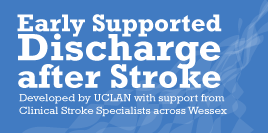Dysarthria weakness/incoordination/imprecision of oral muscles
- There are seven different types of dysarthria dependant upon the underlying neurological condition
- The type of dysarthria is determined by the area of the brain, the motor neurons and cranial nerves that have been affected
- Stroke more commonly results in a mixed dysarthria (flaccid/ataxic/spastic) or unilateral upper motor neuron dysarthria, associated with unilateral hemiplegia
- Precise clinical symptoms may be mild, moderate or severe and may differ for each patient; but the individual will more commonly have weak, slurred and imprecise speech
- There are no difficulties remembering words or forming grammatical sentences



